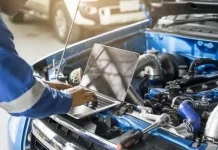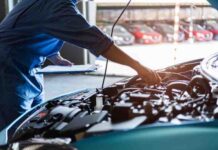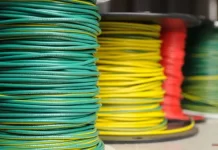Congratulations on your new car! Whether it’s your first vehicle or an upgrade, one thing remains constant – the need for proper care and maintenance to ensure it stays in pristine condition. Taking care of your new car goes beyond just admiring its shine; it’s about preserving its performance, longevity, and value.
In this blog post, we’ll dive into essential maintenance tips and best practices that will help you keep your new car running smoothly for years to come.
Regular oil changes for optimal performance
Oil is the lifeblood of your car’s engine, providing lubrication and preventing friction. Regular oil changes, as recommended by the manufacturer, are crucial to maintaining engine health.
Fresh, clean oil ensures that the engine’s moving parts operate smoothly and efficiently, reducing wear and tear. Neglecting oil changes can lead to decreased fuel efficiency, loss of power, and even engine damage over time.
Tire maintenance
Your car’s tires are its point of contact with the road. Proper tire maintenance is essential for safety and optimal performance. Regularly check tire pressure using a reliable gauge, and ensure they are inflated to the manufacturer’s recommended levels. Additionally, rotate your tires at the specified intervals to promote even wear, extending their lifespan and improving traction.
Fluid checks
Your new car relies on various fluids to function correctly. Regularly inspect and top up essential fluids such as coolant, brake fluid, transmission fluid, and power steering fluid. Maintaining the right fluid levels ensures that your car’s systems work as intended and reduces the risk of overheating, brake failure, and other issues.
Air filter replacement
The air filter in your car prevents dust, dirt, and debris from entering the engine. Over time, it can become clogged, hindering airflow and reducing fuel efficiency. Refer to your owner’s manual for the recommended replacement interval and follow it diligently. A clean air filter allows for better combustion and improved engine performance.
Brake inspection
Brakes are a critical safety component in any vehicle. Regularly inspect your brake pads, rotors, and brake fluid to ensure they’re in good condition. If you notice any squeaking, grinding, or a soft brake pedal, it’s time for a closer inspection. Properly functioning brakes are essential for your safety and the safety of others on the road.
Washing and waxing
When it comes to maintaining your car, keeping the exterior clean is just as important as keeping the engine running smoothly. While most people focus on performance, it’s important not to overlook the damaging effects of dirt, grime, and road salt on your car’s exterior. By regularly washing your car, you can remove these harmful elements and prevent corrosion over time.
For added protection, consider applying a paint protection film in Utah. This will create a barrier that safeguards your car’s paint from UV rays, pollution, and minor scratches, ensuring that your car looks great and maintains its resale value for years to come.
Interior care
A clean interior not only enhances your driving experience but also maintains your car’s value. Vacuum and clean the interior regularly to prevent dust, dirt, and debris from accumulating.
Consider using interior protectants to prevent fading and cracking of surfaces due to prolonged sun exposure. Additionally, using sunshades can help protect your dashboard and upholstery from the sun’s harsh rays.
Develop good driving habits
Your driving habits have a significant impact on your car’s longevity. Avoid aggressive behaviors such as rapid acceleration, sudden braking, and excessive speeding. These habits can accelerate wear on your vehicle’s components, leading to increased maintenance needs and reduced fuel efficiency.
Battery care
Modern cars are equipped with advanced electrical systems, making the battery a critical component. Regularly check the battery terminals for corrosion and ensure they’re clean and securely connected. If your battery isn’t maintenance-free, monitor its water levels if applicable. Testing your battery’s health periodically can help prevent unexpected breakdowns.
Follow the scheduled maintenance guide
Your new car comes with a manufacturer-recommended maintenance schedule outlined in the owner’s manual. This schedule includes routine services such as oil changes, filter replacements, and more. Adhering to this schedule ensures that your car receives the care it needs at the right times, addressing potential issues before they become major problems.
Conclusion
Caring for your new car isn’t just about aesthetics – it’s a combination of responsible ownership and a commitment to maintaining performance, safety, and value. By following these maintenance tips and best practices, you’ll be well-equipped to enjoy a smooth, reliable, and trouble-free journey with your new vehicle.
Remember, a little care today goes a long way in ensuring that your car remains in top-notch condition for many miles and years ahead.

































